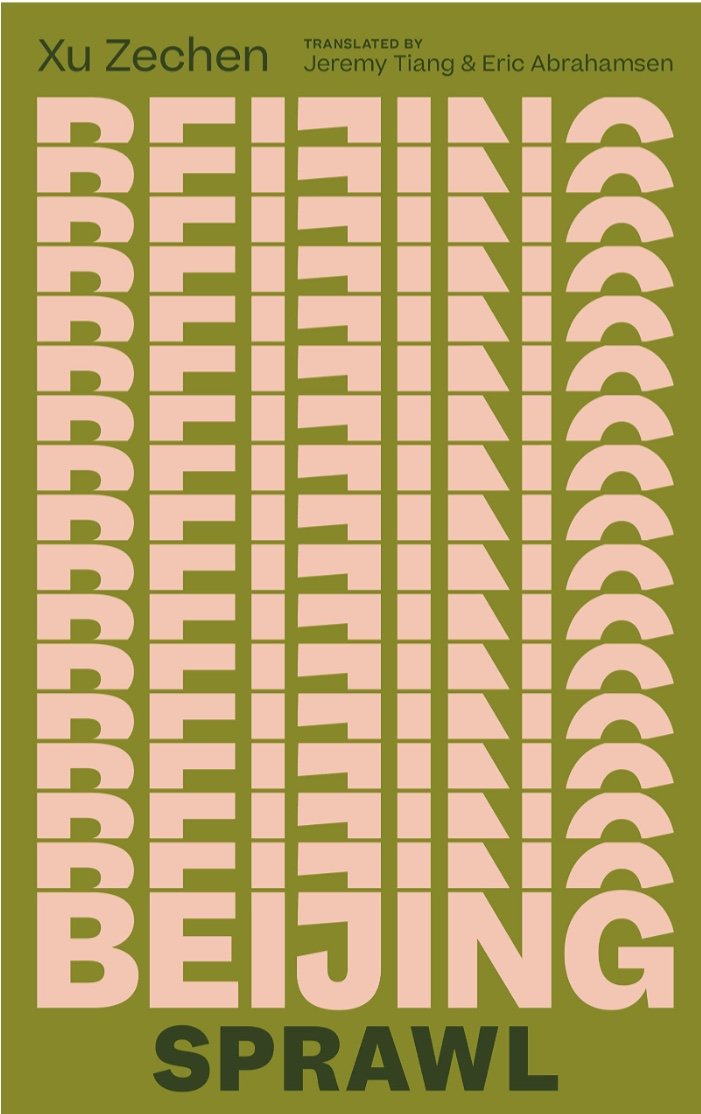Beijing Sprawl by Xie Zechen, translated by Jeremy Tiang and Eric Abrahamsen (Two Lines Press)
To country boys in China’s distant provinces, the ones who drop out of school and have no skills, Beijing is where the money is. Opportunities in the capital are “like bird shit—it would spatter on your head while you weren’t looking and make you rich.”
Four boys have come from the same village to Beijing, where they live together in a room that holds only four bunk beds and a desk. The rooftop is their living room, where they meet at the end of their work day. Sitting on stools, they drink beer, eat donkey burgers, and play cards, surrounded by a city that “spreads quick, like a tropical jungle.”
They all have the same job, pasting ads on empty walls night after night, making just enough to pay the rent for their room and to buy food for their rooftop meals. They’re young enough that this seems like fun--the oldest is twenty and the youngest only seventeen. But they know that life in Beijing for people like them is a “young person’s game.” While they can still be romantic, falling in love with girls whom they see at a distance and dreaming of forming a rock band, they’re well aware that their city life has an expiration date. They see it as it claims older people who came from their village to find wealth but watched their dreams die instead.
One of these men works on construction sites, “wiping out everything that isn’t a skyscraper,” while back in his village his little son calls every man “father,” since he has never known the man who deserves that name. Another patches a car together, building it from scrap that is discarded in the garage where he works. It looks ridiculous but it runs and when he drives it to work, it draws customers to the shop and eventually leads to vehicular homicide.
Occasionally Beijing succumbs to an attack of “urban psoriasis” when street vendors and the boys who paste ads become the itch that the cops are told to scratch. The cleanup brings an enforced leisure that turns into gang fights where different factions arm themselves with whatever they can find. “Sticks, iron coal shovels, furnace tongs,” all become weapons and one boy dies from tripping over the sharpened blade of a hoe, cutting his own throat.
Boredom is a dangerous occupation. From their rooftop, the boys become enraged by the barking of a neighbor’s dog that is chained up nearby. First they tease it and then become more purposeful. What begins as a game turns into cruelty and then death.
Even good intentions turn into tragedies. A young man who lets himself worry about a little girl who begs on the street is lost forever in his attempts to take her to safety. Another who falls in love with a girl whom he only sees when he peers through the window of a tavern ends up back in his village, a drooling idiot.
“I’d sell blood twice for that,” one boy says after treating his friends to a restaurant meal. But in fact, all of these lost boys sell their blood every day in a different form, as they scrabble to keep their expiration dates at bay. They know that, for lives like theirs, there are no happy endings. Their stories are bleak and beautiful, stark and laced with humor, interlocking to form a novella that just might break your heart.~Janet Brown


